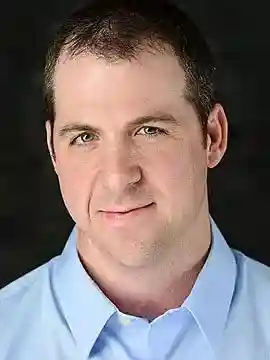Part one of this article on creative timing gives you context; my vision for this next part is to give you actionable tactics.
My first mission was to reach out to Dan Pink himself, the formidable author of When and many other excellent books, such as Drive and To Sell is Human. His inbox is notoriously difficult to penetrate, so I kept it short and asked him:
"After researching and writing When, what is your #1 tip for pure creatives such as novelists to use "perfect timing" to their advantage?"
Dan's response: "Be as intentional about when you do your work as you are about what you do and how you do it. It will pay off."
With that in mind, I urge you to experiment with your perfect, creative timing. It's just another variable you can tinker with to increase the quality and quantity of your output.
But, how? I used tactics from When and followed a few rabbit holes into a grand self experiment. I'm about to show you my results, and I think you can easily adapt these tactics to run your own self-experiment.
Ready?
MORNING PEOPLE, NIGHT OWLS, AND "THIRD BIRDS"
Not all humans are built the same. We have long divided the population into “morning people” and “night owls.” Dan creates three divisions, and your peak hours for analytical and creative performance are directly related to your optimal circadian rhythms.
He calls that third division "third birds," who straddle the line between straight-up morning people and night owls. The majority of the population straddles this line.
The insight I've drawn from this after reading the book and testing its principles on myself, on family members, and on friends is that our bodies don't care what we THINK we are; we could be forcing a morning person routine into our lives even though we are reacting to that routine as if we are night owls and require a different schedule for optimum results.
The requirements of your employment (and your life in general) sometimes make optimization impossible, but for the novelist who typically has a day job and writes at various points throughout the day, you may get data that makes you take a second look at when you create.
Gaining ground on your personal "when" is a three-step process.
- Take a science-based test that offers up optimal sleep patterns based on behavioral questions.
- Match that optimal sleep pattern to find out if you're a morning person, a night owl, or a "third bird."
- Strategically adjust to "bake in" your best schedule, and consider creating during your peak creative period.
My own experience with this was startling.
I typically go to bed between 9 and 10 p.m., and wake up to my alarm at 5:50 a.m. I log between 8-9 hours of sleep and have trouble waking up in the mornings.
During the mornings I don't commute, I do a short workout (usually stretching and foam roller work nowadays) and use that extra time for writing.
In the evenings when my daughter goes to bed, and my wife catches up on a TV show or work, I'll sometimes fit in a writing session before bed.
I took the test and came out as a "third bird." My optimal sleep pattern was as follows:
- I start creating melatonin around 9:30 p.m.
- Optimal bedtime is no later than 11:00 p.m.
- Optimal wake-up time is 6:00 a.m.
I was surprised to see a "prescription" come with the study's results, but in retrospect, it makes sense—they recommended using a 10,000 lux light for bright light exposure up to 30 minutes each morning starting at 6:15 a.m.
Why?
The sun comes up at different times, and because of a variety of factors, we are exposed to bright light at different times. With the shades drawn and then driving away from the sun to work, you may not experience bright light for quite a while each morning.
The light is critical to your body's circadian rhythms.
Using the light at a consistent time each morning would "bake in" the schedule and optimize my sleep patterns. A 10,000 lux light is only 80 bucks on Amazon, so I figured, why the hell not?
(See below for the exact light I purchased.)
My results were surprising.
SEEING THE LIGHT
After just a few days of consistently using the light at 6:15 a.m. each morning, a few noticeable things happened:
--I could stay awake later, with more alertness
--Almost counterintuitively, I woke up just before my alarm went off, like clockwork, with a lot more energy than normal. Getting out of bed was far, far easier.
After six or so weeks of this experiment, it feels more like a lifestyle adjustment. This timing optimization gained me a couple of extra hours of productive time each night, and those are hours I've chosen to do additional writing or side projects.
Also, I've run counter to "be a maker in the morning and a manager in the afternoon," a saying I've heard James Altucher say a lot on his podcast. If you reverse it to "manage" in the morning and "make" in the afternoon, you're managing when you are at your analytical peak, and creating when the barriers of analysis are broken down.
However, James might be a different circadian archetype, and his schedule may be perfect for his own individual optimum timing.

POWER NAPPUCINO
Another bonus tip for those afternoon creative sessions: try using the "nappucino" technique.
Naps are great, caffeine works, but you can cleverly combine them to gain the power of both at the same time.
Drink your caffeine source just before you take a nap. It takes about 20-25 minutes for the effects to kick in, and in that time, you can catch your optimal nap of 15-20 minutes.
When you wake up, you get the refreshment of a nap alongside the caffeine starting to work in your system.
This double kickstart is a great way to prime yourself for creative sessions, especially if you're trying to perform them when analytical barriers have eroded.
RESULTS
Has the writing itself improved? I don't know. I feel like I'm more productive and there is less resistance when working.
Is this possibly a placebo effect? Perhaps. I'm no scientist, and my results can only be taken as anecdotal, but when you combine my experience with Dan's thoroughly-researched work, there is obviously some value to considering WHEN you write just as much as HOW.
I will say that I had an idea for a piece of a new novel, and just decided to start writing it, and generated around 23k words in less than a week. That type of volume is larger than my normal output, and I do feel like the prose was more refined than my usual first-draft material.
FINAL THOUGHTS
I don't think you can just cut and paste my results to your own schedule. Your own optimum timing is as unique as a fingerprint.
I urge you to set aside fifteen minutes to take the test, and give thoughtful answers. Try not to think "I'm a morning person, so I'll answer this way." Answer honestly and see what kind of results you get.
After that, I'd urge you to take those results to heart and give them a chance in your own life. You'll know if it works for you in short order, and I now count the 10,000 lux light as one of my favorite gadgets that has absolutely worked wonders for me. As an added bonus, those lights help anyone who suffers from seasonal affective depression, so they will literally brighten your mood on top of "baking in" your sleep timing.
I've slowly adjusted my timing to program myself to get up even earlier, so now I can sit with the light and do some journaling, reading, and plan my day while most people are dragging themselves forcefully out of bed.
The only negative side effect? If I wake up too early, sometimes I feel energetic enough to get out of bed at, say, 4 a.m. instead of logging that last hour of sleep, and when I do that, I lose some prime hours in the evening due to fatigue.
If you try any of this, I'd love to know if it helps improve your routine with writing, work, or whatever moves you.
I'll do my best to answer any questions in the comments, so fire away—and I'll be sure to answer during my analytical peak.

About the author
Fred Venturini grew up in Patoka, Illinois. His short fiction has been published in the Booked Anthology, Noir at the Bar 2, and Surreal South '13. In 2014, his story "Gasoline" is featured in Chuck Palahniuk's Burnt Tongues collection. The Heart Does Not Grow Back, published by Picador in 2014, is his first novel. He lives in Southern Illinois with his wife and daughter.







